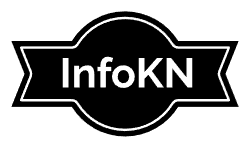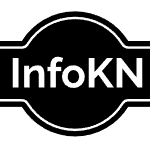Building Your Personal Brand Online: Strategies to Stand Out on the Web
In today’s digital age, personal branding has become a powerful tool for standing out in the vast landscape of the internet. With countless individuals and businesses vying for attention, defining and nurturing your personal brand is essential. This article will guide you through the strategies and steps to build a compelling online presence that reflects your unique identity and resonates with your target audience.
The Power of Personal Branding in the Digital Age

In a world where the internet is the primary stage for personal and professional interactions, personal branding has emerged as a pivotal force. Your online presence is your calling card, and the strength of your personal brand can open doors and opportunities that might have otherwise remained closed.
In the digital age, personal branding has transcended the confines of the corporate world. It’s no longer reserved for CEOs and celebrities. Individuals from various walks of life, whether they’re artists, writers, entrepreneurs, or professionals, are realizing the importance of cultivating their personal brand.
Your personal brand is essentially your digital identity, and it extends far beyond your resume. It encompasses your values, your passions, your unique skills, and the story you want to tell the world. It’s about shaping how others perceive you and what they associate with your name.
Defining Your Personal Brand: What Makes You Unique
At the core of personal branding is the understanding of what sets you apart. What values, skills, experiences, or qualities make you unique? This section explores how to uncover and articulate your distinctive attributes, which will form the foundation of your personal brand.
To begin, take a moment for self-reflection. What are your core values? What are the principles that guide your decisions and actions? Your personal brand should authentically reflect these values because they are the compass by which you navigate your personal and professional life.
Then, consider your strengths and expertise. What are you exceptionally good at? Identifying these skills is crucial because they are the building blocks of your personal brand. Whether you’re a technology enthusiast, a wordsmith, a design virtuoso, or an expert in any field, these strengths should be front and center in your personal branding strategy.
Setting Your Goals: What Do You Want to Achieve?
Setting clear objectives is the compass that will guide your personal branding journey. Whether you aim to become an influencer, grow your business, or simply connect with a like-minded community, defining your goals is crucial for charting the path forward.
Your goals might revolve around increasing your social media following, launching a successful podcast, publishing a book, or becoming a sought-after speaker. Each of these objectives will shape your personal branding strategy and the tactics you employ to achieve them.
It’s important to set both short-term and long-term goals. Short-term goals can provide quick wins and motivate you as you progress, while long-term goals keep you focused on the bigger picture.
In this digital age, where opportunities are vast and competition is fierce, setting clear, achievable goals is the first step toward making your mark on the web.
The Foundations of Personal Branding

Unveiling Your Core Values: What Drives You
Your core values are the driving force behind your personal brand. These principles and beliefs shape your decisions, actions, and the content you share. Discovering and aligning with your core values will help you create an authentic personal brand that resonates with your audience.
To unveil your core values, start by identifying the principles that hold the most significance in your life. What are the non-negotiables that guide your choices? Is it integrity, innovation, creativity, sustainability, or empathy? By clarifying your core values, you’ll be better equipped to communicate your beliefs and connect with an audience that shares your principles.
Identifying Your Strengths and Expertise
What are you exceptionally good at? Your strengths and expertise are the building blocks of your personal brand. This section delves into strategies for recognizing and showcasing your skills, whether you’re a tech guru, an artist, or a marketing whiz.
Begin by conducting a skills audit. Identify the areas in which you excel. Are you a top-notch problem solver, an outstanding communicator, a brilliant coder, or an artistic visionary? Your strengths and expertise provide a unique value proposition that you can offer to your audience.
Once you’ve identified your strengths, focus on honing and expanding them. Personal development and continuous learning play a significant role in strengthening your expertise, enhancing your personal brand, and staying competitive in the digital realm.
Understanding Your Target Audience: Who Are You Speaking To?
Effective personal branding requires a deep understanding of your target audience. Who are the people you want to connect with, and what are their needs and preferences? Crafting a brand that speaks directly to your audience is key to building a strong online presence.
Begin by creating a detailed audience persona. Consider demographics, interests, pain points, and aspirations. What challenges are they facing? What solutions can you provide? By understanding your audience’s motivations and struggles, you can tailor your content and messaging to resonate with them.
Building authentic connections with your audience involves empathy and active listening. Engage with your followers, respond to their comments and messages, and show that you genuinely care about their needs. This fosters trust and loyalty, key elements in successful personal branding.
Crafting Your Brand Story: The Narrative That Defines You
Storytelling is a potent tool for personal branding. Your brand story is the narrative that encapsulates your journey, your values, and your mission. This section explores the art of crafting a compelling brand story that captivates your audience.
Your brand story should reflect your unique experiences and the path that led you to where you are today. What challenges have you overcome? What have you learned along the way? Your story adds a human element to your personal brand, making it relatable and inspiring.
When crafting your brand story, consider the emotional impact you want to have on your audience. Do you aim to motivate, entertain, or educate? Your story should resonate with the emotions and aspirations of your audience, leaving a lasting impression.
Online Presence and Branding

Social Media Mastery: Leveraging Platforms for Branding
Social media platforms are fertile ground for personal branding. Here, you’ll discover strategies for optimizing your social media presence, building a consistent brand image, and engaging with your audience effectively.
Your journey in personal branding on social media begins with selecting the right platforms. Different social media networks cater to various types of content and audiences. Whether it’s the visual allure of Instagram, the professional networking on LinkedIn, the fast-paced conversations on Twitter, or the community-building capabilities of Facebook, each platform has its unique strengths.
Consistency is key in maintaining a strong presence. Ensure your profile and posts are in alignment with your brand’s identity, from the content you share to the visual elements and the tone of your messaging. Regular posting and engagement with your audience keep your brand top-of-mind and relevant.
The Art of Content Creation: Blogs, Vlogs, and More
Content is king in the digital world. Whether you’re a writer, a video creator, or a podcaster, this section provides insights into producing high-quality content that showcases your expertise and reinforces your brand.
Creating valuable content is the foundation of your personal brand’s visibility and credibility. It’s the means through which you can share your knowledge, entertain, or inspire your audience. If you’re a writer, blogging can be your medium to express your ideas. For those who prefer the visual format, vlogging can engage your audience through video content. Podcasting is ideal for those who excel in the auditory realm.
Whichever medium you choose, the art of storytelling should remain at the core of your content creation. Weave your experiences, knowledge, and insights into your content to make it relatable and valuable to your audience.
Visual Identity: The Role of Imagery in Branding
The visual elements of your personal brand, from logos to graphics, play a vital role in brand recognition. Learn how to design and incorporate visual elements that strengthen your brand’s identity.
Visual identity is what sets your personal brand apart at first glance. It includes the colors, fonts, logos, and imagery you use across your digital platforms. A well-crafted visual identity not only makes your brand more memorable but also conveys your brand’s personality and values.
Your visual elements should resonate with your target audience and reflect your brand’s story. Consider the emotions and messages your chosen colors and graphics convey. Consistency in visual branding across all your online platforms enhances recognition and reinforces your brand’s identity.
Website Wonders: Establishing a Digital Home Base
A personal website is your digital home base, offering a central hub for your brand. Discover the steps to create an engaging website that tells your brand’s story and provides valuable resources for your audience.
Your personal website is the cornerstone of your online presence. It’s the place where your audience can find comprehensive information about you, your brand story, your content, and how to connect with you. A well-designed website not only enhances your brand’s professionalism but also serves as a valuable resource for your audience.
When creating your website, prioritize user-friendliness and responsive design to ensure that visitors have a seamless experience regardless of their device. Feature a captivating homepage that introduces your brand and encourages exploration. Don’t forget to provide easy ways for visitors to subscribe, contact you, or engage with your content.
Engaging Your Audience
Building Authentic Connections: Engagement and Community Building
Engaging with your audience is about more than just posting content. Learn how to foster genuine connections, build a community, and encourage meaningful interactions with your brand.
Building authentic connections with your audience is at the heart of personal branding. It’s not just about accumulating followers or likes but about creating a loyal and engaged community around your brand.
One of the fundamental ways to build these connections is by responding to comments and messages. Actively engage with your audience, answer questions, express gratitude for their support, and show that you’re genuinely interested in their thoughts and feedback.
Furthermore, consider creating opportunities for your audience to connect with each other. By fostering a sense of community, you strengthen your brand’s impact and create a supportive space for your followers.
Navigating Feedback and Criticism: Turning Challenges into Opportunities
Feedback and criticism are part of the online landscape. This section offers guidance on how to handle feedback constructively and transform challenges into opportunities for growth.
Navigating feedback and criticism with grace is a skill that can elevate your personal brand. Welcome feedback, both positive and negative, as it provides insights into your audience’s preferences and areas for improvement.
Respond to feedback with gratitude and an open mind. Use constructive criticism as a stepping stone for growth, showing your commitment to continuous improvement. Address concerns professionally and transparently, turning detractors into advocates of your brand.
The Power of Consistency: Maintaining Your Brand’s Voice
Consistency is the glue that holds your brand together. Explore the importance of maintaining a consistent brand voice across all your online channels and interactions.
Consistency is a foundational element of personal branding. It ensures that your brand remains recognizable and coherent across all platforms and interactions.
To maintain consistency, define your brand’s tone of voice. Are you informal and friendly, or more formal and authoritative? Your tone should match your brand’s identity and resonate with your target audience.
Consistency should extend to your content schedule as well. Regular posting and engagement keep your audience engaged and informed about what to expect from your brand. Maintain consistency in the visual elements, such as colors and imagery, to reinforce your brand’s identity.
Expanding Your Reach

Collaboration and Networking: Building Alliances in the Digital Sphere
Collaboration can significantly amplify your reach and influence. Discover the art of building alliances and partnerships within the digital sphere to expand your brand’s visibility.
In a digital world that thrives on connectivity, collaboration is a potent strategy to enhance your personal brand. Partnering with like-minded individuals, businesses, or organizations can extend your reach and introduce your brand to new audiences.
To get started, identify potential collaborators who share your values and target a complementary audience. Whether it’s co-hosting webinars, guest posting on each other’s blogs, or working together on joint projects, collaborations create win-win situations, exposing both parties to fresh perspectives and followers.
Leveraging SEO and Online Visibility
Search Engine Optimization (SEO) is your ally in enhancing online visibility. Uncover the strategies to improve your search engine rankings and attract a broader audience.
A key aspect of expanding your reach is optimizing your online visibility. SEO is a fundamental tool to ensure that your content and personal brand are discoverable by a broader audience.
Begin by researching keywords relevant to your brand and target audience. Implement these keywords strategically in your website content, blogs, and social media posts. Consistently producing high-quality, relevant content will improve your search engine rankings, making it easier for potential followers and clients to find you.
Keep abreast of SEO best practices and algorithm updates to stay at the forefront of search results, and consider using tools to track your website’s performance in search engines. SEO is an ever-evolving field, so being proactive in this area can have a significant impact on expanding your brand’s reach.
Harnessing the Potential of Email Marketing
Email marketing remains a powerful tool for personal branding. Learn how to create engaging email campaigns that connect with your audience on a deeper level.
While social media and content creation are essential components of personal branding, don’t overlook the power of email marketing. Email allows for a more intimate and direct connection with your audience, making it an invaluable asset for building and nurturing your personal brand.
Begin by building a strong email list. Encourage website visitors and social media followers to subscribe to your newsletters or updates. Then, craft engaging email campaigns that provide value to your subscribers. Share exclusive content, insights, or promotions that resonate with their needs and interests.
Segment your email list based on audience preferences and behaviors to send targeted and personalized messages. This ensures that your email content aligns with the different segments of your audience, resulting in higher engagement and conversions.
Public Speaking and Webinars: Taking Your Brand Live
Taking your personal brand to the live stage can be a game-changer. This section explores how to utilize public speaking engagements and webinars to connect with your audience in real-time.
Public speaking and webinars are opportunities to showcase your expertise and connect with your audience on a personal level. Live engagements provide a platform to convey your passion and knowledge, reinforcing your personal brand.
If public speaking is your forte, consider participating in conferences, seminars, or workshops in your niche. Sharing your insights and expertise in front of a live audience establishes you as an authority in your field. Be sure to record and share these presentations on your digital platforms for a wider audience.
Webinars are another dynamic way to connect with your audience in real-time. Host webinars that address relevant topics, answer questions, and provide valuable insights. Webinars not only allow for audience interaction but also offer opportunities to collect email addresses for future engagement.
Monitoring and Adapting
Analytics and Metrics: Measuring Your Brand’s Impact
Measuring the impact of your personal brand is essential for growth. Delve into the world of analytics and metrics to understand what’s working and where you can improve.
To ensure your personal branding strategies are effective, you must measure their impact. Analytics and metrics provide valuable insights into the performance of your digital efforts, helping you refine your strategies and identify areas for improvement.
Start by setting clear objectives and key performance indicators (KPIs) for your personal brand. These could include website traffic, social media engagement, email open rates, or the number of new subscribers. Regularly track these metrics to gauge your progress toward your goals.
Several tools and platforms offer analytics and reporting features. Google Analytics, social media insights, and email marketing platforms can provide data on your audience’s behavior, preferences, and the performance of your content. Use these insights to adapt your strategies and content to better resonate with your audience.
Adapting to Changing Trends: Staying Relevant in a Shifting Digital Landscape
The digital landscape is ever-evolving. This section guides you in staying ahead of the curve by adapting to changing trends and technologies.
In the fast-paced digital world, staying relevant is a constant challenge. Adapting to changing trends is essential to maintaining the effectiveness of your personal branding strategies.
Keep a close eye on emerging trends in your niche. Whether it’s new social media platforms, content formats, or technological advancements, staying informed is key. Attend webinars, workshops, and industry events to stay updated on the latest developments.
When you identify a new trend, assess its relevance to your personal brand and audience. Experiment with incorporating these trends into your content and engagement strategies. Be open to innovation and flexibility to ensure your brand remains a fresh and appealing presence in the digital realm.
Case Studies: Real-Life Examples of Successful Personal Branding

Learning from the success stories of others can be highly inspiring. Explore real-life case studies of individuals who have achieved remarkable personal branding results.
Sometimes, the best way to understand the power of personal branding is by examining real-life examples. Case studies provide insights into the strategies and tactics that successful individuals have used to build their personal brands.
These case studies can include stories from influencers, entrepreneurs, professionals, or creatives who have effectively established their personal brands. Analyze how they navigated challenges, created compelling content, engaged with their audience, and adapted to industry changes.
By studying these case studies, you can draw inspiration and discover applicable strategies for your personal brand. Take note of the lessons learned and tailor them to your unique journey.
Future-Proofing Your Personal Brand: Preparing for What’s Ahead
The future is uncertain, but your personal brand can be future-proofed. Discover strategies for preparing your brand for whatever the digital landscape holds in the years to come.
In a world where technology and trends constantly evolve, future-proofing your personal brand is essential. Preparing for what lies ahead ensures that your brand remains relevant and resilient.
Begin by staying attuned to emerging technologies and trends within your niche. Continuous learning and professional development are essential for adapting to changing landscapes. Join forums, communities, and online courses to keep up with industry changes.
Additionally, keep an open line of communication with your audience. Gather feedback and conduct surveys to understand their evolving needs and preferences. By aligning your brand with their expectations, you’ll be better positioned to adapt to the shifting digital landscape.
In conclusion, building your personal brand online is a dynamic and ever-evolving journey. By understanding the power of personal branding, defining your unique attributes, setting clear goals, and leveraging the strategies and steps outlined in this article, you can create a compelling online presence that resonates with your target audience and sets you apart in the digital realm.
Your Next Steps: Applying Strategies for Building Your Personal Brand
With a wealth of insights and strategies at your disposal, it’s time to take action. This final section provides a roadmap for applying the knowledge and building your personal brand online. Whether you’re an aspiring influencer, entrepreneur, professional, or creative, the journey of personal branding awaits. Your next steps are essential in bringing your brand to life and making a meaningful impact in the digital age.
FAQ: Building Your Personal Brand Online
What is personal branding, and why is it important?
Personal branding is the process of defining and promoting your unique identity and values in the digital world. It’s crucial because it helps you stand out in the vast online landscape, connect with your target audience, and open up new opportunities for personal and professional growth.
How do I identify what makes me unique for my personal brand?
Start by understanding your core values, strengths, expertise, and experiences. Reflect on what drives you and what sets you apart from others in your field. These unique attributes will form the foundation of your personal brand.
Why should I set clear goals for my personal branding journey?
Setting goals gives you direction and purpose. Whether you aim to become an influencer, grow your business, or connect with a like-minded community, defining your objectives guides your branding efforts and measures your success.
What role do core values play in personal branding?
Your core values are the driving force behind your personal brand. They shape your decisions, actions, and the content you share. Aligning with your core values helps you create an authentic brand that resonates with your audience.
How can I build authentic connections and a community around my personal brand?
Engaging with your audience beyond posting content is essential. Respond to comments, messages, and foster a sense of community among your followers. Creating opportunities for your audience to connect with each other can also strengthen your brand.
How should I handle feedback and criticism as I build my personal brand?
Welcome feedback, both positive and negative, with gratitude and an open mind. Use constructive criticism as a stepping stone for growth. Address concerns professionally and transparently, turning detractors into advocates of your brand.
Why is consistency important in personal branding?
Consistency ensures that your brand remains recognizable and coherent across all platforms and interactions. It includes visual elements, tone of voice, and content schedule. Consistency enhances brand recognition and maintains your brand’s identity.
How can I expand my personal brand’s reach?
Expanding your brand’s reach involves collaboration and networking to build alliances, leveraging SEO for online visibility, harnessing the potential of email marketing, and taking your brand live through public speaking and webinars.
What are the essential steps for measuring the impact of my personal brand?
Measuring the impact involves setting clear objectives and key performance indicators (KPIs). Regularly track website traffic, social media engagement, email open rates, and other relevant metrics. Use analytics and metrics tools to understand what’s working and where you can improve.
How can I adapt to changing trends and stay relevant in a shifting digital landscape?
Stay informed about emerging technologies and trends within your niche. Continuously learn and adapt to industry changes. Conduct feedback surveys to understand your audience’s evolving needs and preferences, aligning your brand with their expectations.
Where can I find real-life examples of successful personal branding?
Case studies of individuals who have achieved remarkable personal branding results are valuable resources. Look for case studies of influencers, entrepreneurs, professionals, or creatives in your niche. Analyze their strategies and lessons learned.
How can I future-proof my personal brand?
Future-proofing your brand involves staying informed about emerging technologies, trends, and continuous learning. Keeping open communication with your audience and aligning your brand with their evolving needs and expectations will help you adapt to the shifting digital landscape.
What are the next steps I should take to apply the strategies for building my personal brand?
Your next steps should involve practical implementation. Create a personal branding plan, design your website, start posting content, engage with your audience, and build alliances. Take action and keep refining your brand as you go along.
In our previous article, we explored the power of personal branding and how to build your unique online identity. Now, let’s dive into the practical side of things. To maximize your efficiency and stay focused while building your personal brand, you can leverage some of the best productivity apps available. Discover how these tools can help streamline your workflow and boost productivity in our article on Maximizing Efficiency with Productivity Apps: The Best Tools for Staying Focused.
External Link Paragraph:
While building your personal brand, it’s crucial to understand the significance of personal branding in the ever-evolving digital landscape. Shruti Mishra provides valuable insights into why personal branding is essential in 2023 and how to go about it in her comprehensive article on Why Building a Personal Brand Is Important in 2023: How to Build One. Her perspective can offer you additional guidance and inspiration as you embark on your personal branding journey.





